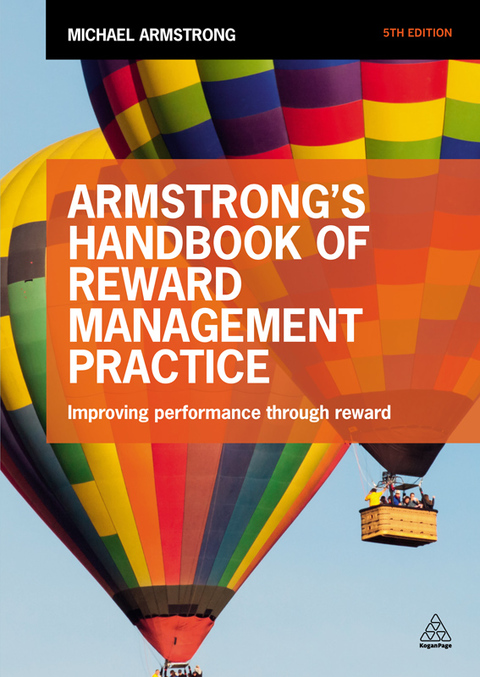Description
Efnisyfirlit
- Cover
- Also available by Michael Armstrong
- Title page
- Contents
- Introduction
- PART ONE An overview of reward management
- 01 Fundamentals of reward management
- Reward management defined
- Aims of reward management
- Reward philosophy
- Guiding principles
- Reference
- 02 Reward systems
- Reward systems defined
- Description of the main elements of a formal reward system
- Reward systems in action
- Developing formal reward systems
- The development and implementation programme
- References
- 03 Strategic reward
- Introduction
- Strategic reward
- Reward strategy
- Case studies
- References
- 04 Reward policies
- Reward policies defined
- Reward policy areas
- References
- 05 Factors affecting reward
- Introduction
- Internal context
- External context
- Factors affecting levels of pay
- Pay determination within organizations
- References
- 06 Motivation and reward
- Introduction
- The process of motivation
- Types of motivation
- Instrumentality theory
- Reinforcement theory
- Content (needs) theory
- Process theory
- How motivation theories affect reward management
- References
- 07 Engagement and reward
- Introduction
- Engagement defined
- Why engagement is important
- Developing engagement through reward
- Conclusion
- References
- 08 Performance and reward
- Introduction
- The meaning of performance
- Impact of reward on organizational performance
- How does reward impact on performance?
- The role of performance management
- Performance management issues
- References
- 09 Financial rewards
- Introduction
- Incentives and rewards
- The theoretical framework
- The role of money
- Research on the effectiveness of financial rewards
- Opponents of financial rewards
- Arguments for and against financial rewards
- Criteria for effectiveness
- References
- 10 Non-financial rewards
- Introduction
- The significance of non-financial rewards
- Types of non-financial rewards
- References
- 11 Total rewards
- Introduction
- The concept of total rewards
- The approach to total rewards
- Bridging the gap
- Total rewards in practice
- Conclusions
- References
- 12 The ethical approach to reward and performance management
- Introduction
- Ethical decisions in reward and performance management
- Why is an ethical approach desirable?
- Fairness
- Treating people justly
- Resolving ethical dilemmas
- The ethical role of reward professionals
- An ethical code of practice for reward and performance management
- References
- PART TWO Base pay management
- 13 Market pricing
- Introduction
- Aims of market pricing
- The concept of a market rate
- Job matching
- Use of benchmark jobs
- Sources of market data
- Interpreting and presenting market rate data
- Using survey data
- 14 Job evaluation
- Introduction
- Job evaluation defined
- Aims of job evaluation
- Achieving the aims
- Formal job evaluation
- Informal job evaluation
- Analytical job evaluation schemes
- Non-analytical schemes
- Market pricing
- Levelling
- Job analysis for job evaluation
- Computer-aided job evaluation
- Choice of approach to job evaluation
- Developing a point-factor job evaluation scheme
- Implement job evaluation
- Ensuring that the scheme is unbiased
- References
- 15 Grade and pay structures
- Introduction
- Grade structures
- Grade and pay structures
- Guiding principles
- Formal grade and pay structures
- Multi-graded structures
- Broad-banded structures
- Broad-graded structures
- Job-family structures
- Pay spines
- Unstructured pay systems
- Spot rates
- Individual job grades
- Choice of approach
- Developing formal grade and pay structures
- Minimizing bias in grade and pay structure design
- References
- 16 Equal pay
- Introduction
- Reasons for unequal pay
- The Equality Act 2010
- Defending an equal pay claim
- Achieving equal pay
- Risk assessment
- References
- PART THREE Rewarding and recognizing performance and merit
- 17 Merit pay
- Introduction
- Characteristics of merit pay
- Method of operation
- Types of merit pay
- Competency-related pay
- Contribution-related pay
- Overall conclusions on merit pay
- Developing merit pay schemes
- References
- 18 Bonus schemes
- Introduction
- Bonus schemes defined
- Aims of bonus schemes
- Rationale for bonus schemes
- Criteria for a bonus scheme
- Types of scheme
- Designing a bonus scheme
- Introducing a bonus scheme
- Earn-back pay
- Bonus schemes and performance
- References
- 19 Team pay
- Introduction
- Team pay defined
- Rationale for team pay
- How team pay works
- Requirements for team pay
- Advantages and disadvantages of team pay
- Developing team pay
- NHS case study
- References
- 20 Rewarding for business performance
- Introduction
- Types of schemes
- Aims
- Profit sharing
- Gain sharing
- Share ownership schemes
- References
- 21 Recognition
- Introduction
- Recognition schemes defined
- Benefits of recognition schemes
- Principles of recognition
- Types of recognition
- Examples of non-cash awards
- Designing a recognition scheme
- Examples of recognition schemes
- PART FOUR Rewarding special groups
- 22 Executive reward
- Introduction
- Executive pay levels
- Factors affecting the level of executive rewards
- Corporate governance and executive remuneration
- The elements of executive remuneration
- References
- 23 Rewarding sales and customer service staff
- Introduction
- Rewarding sales representatives
- Rewarding customer service staff
- References
- 24 Rewarding knowledge workers
- Introduction
- What motivates knowledge workers?
- Approaches to rewarding knowledge workers
- References
- 25 Rewarding manual workers
- Introduction
- Factors affecting the pay of manual workers
- Time rates
- Pay structures
- Incentive schemes for manual workers
- Payment-by-results schemes
- Collective schemes
- Summary of schemes
- Single status and harmonization
- References
- 26 International reward
- Introduction
- The international scene
- Reward management for employees working in international subsidiaries
- Rewards for expatriates
- References
- PART FIVE Employee benefits
- 27 Provision of employee benefits
- Introduction
- Rationale for employee benefits
- Employee benefit strategies and policies
- Types of benefit
- Incidence of benefits
- Choice of benefits
- Administering employee benefits
- Total reward statements
- References
- 28 Flexible benefits
- Introduction
- Reasons for introducing flexible benefits
- Types of flexible benefits schemes
- Introducing flexible benefits
- References
- PART SIX The practice of reward management
- 29 Evidence-based reward management
- Introduction
- Evidence-based management
- Evidence-based reward management
- Reviewing reward
- Measuring reward
- Evaluating reward
- Conclusions
- References
- 30 Managing reward systems
- Introduction
- Controlling reward
- Monitoring and evaluating reward policies and practices
- Conducting pay reviews
- General reviews
- Individual reviews
- Reward procedures
- The use of computers in reward management
- Communicating to employees
- References
- 31 Managing reward risk
- Introduction
- Risk management
- Reward management risks
- The risk management process
- References
- 32 Responsibility for reward
- Introduction
- The role of the reward professional
- Role of line managers
- Using reward consultants
- References
- Index
- Copyright







Reviews
There are no reviews yet.